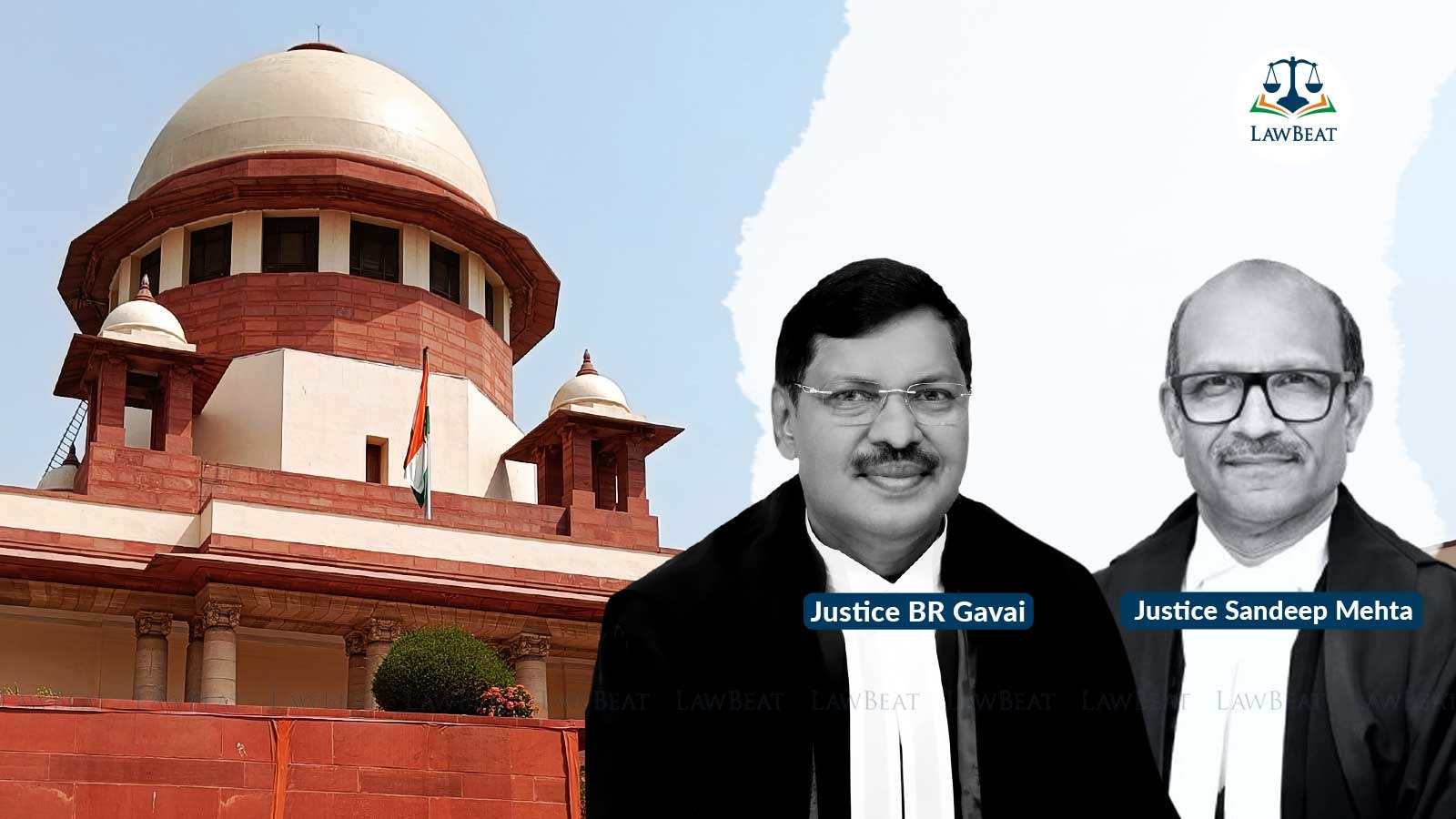Hindu female must have acquired property besides mere possession to claim full ownership: SC

Court had said there was no consideration that the predecessor of the plaintiff or the plaintiff himself were ever in possession of the suit property or had acquired the same
The Supreme Court has said for establishing full ownership on the undivided joint family estate under Section 14(1) of the Succession Act, the Hindu female must not only be possessed of the property but she must have acquired the property.
Such acquisition must be either by way of inheritance or devise, or at a partition or in lieu of maintenance or arrears of maintenance” or by gift or be her own skill or exertion, or by purchase or by prescription, it has added.
A bench of Justices B R Gavai and Sandeep Mehta reversed and set aside the Rajasthan High Court's division as well as single judge bench judgments rendered in 2017 and 2006 respectively, acting on an appeal filed by Mukul Lal.
"We find that there is no consideration in these judgments that the predecessor of the plaintiff Kailash Chand or the plaintiff himself were ever in possession of the suit property or had acquired the same," the bench said.
As a matter of fact, the suit was filed by pleading that the suit property was a joint Hindu family property and defendant Mukat Lal (appellant herein) had consented to give half share of the suit property to the plaintiff Kailash Chand on his demand. However, this assertion was denied by defendant-Mukat Lal, the court said.
"When we consider the effect of the earlier civil suit instituted by Smt. Nadkanwarbai (deceased widow), it becomes clear that she was never in possession of the suit property because the civil suit was filed by her claiming the relief of title as well as possession and the same was dismissed. This finding of the civil Court was never challenged," the bench pointed out.
It also recorded since, Smt. Nadkanwarbai was never in possession of the suit property, as a necessary corollary the Revenue suit for partition claiming absolute ownership under Section 14(1) of the Hindu Succession Act could not be maintained by her adopted son, plaintiff Kailash Chand by virtue of inheritance.
In the present case, the court examined whether in absence of even a semblance of possession either actual or legal over the suit property, plaintiff Kailash Chand being the legal heir of Smt Nandkanwarbai was entitled to institute a Revenue suit for partition of the suit property based on the succession rights of the widow on the joint Hindu family property.
Indisputably, in the case, the bench found neither Smt Nadkanwarbai nor the plaintiff Kailash Chand were ever in possession of the suit land.
The appeal before the court arose from the Revenue Suit of 1979 seeking partition which culminated in the impugned judgment by the division bench of the Rajasthan High Court.
Mukat Lal contended Smt Nandkanwarbai had no interest, either limited or otherwise, in the suit land which could fructify into absolute ownership under section 14(1) of the Succession Act and the division bench erred in treating “Charge over property towards Maintenance” as possession over the property.
He also submitted in order to attract Section 14(1) of the Succession Act, there must be a “Property possessed by the Hindu Women” but in the present case, the suit for possession and title filed by Smt Nandkanwarbai was dismissed and hence she was never in possession, either legal or actual, over the suit property.
Further, he contended the civil suit for title and possession filed by Smt Nandkanwarbai having been dismissed, the judgment of the civil Court operated as res judicata and hence the relief could not have been granted to her adopted son, Kailash Chand (plaintiff) in the subsequent partition suit filed in the Revenue Court.
The core question of law involved in the appeal was as to the right of the plaintiff Kailash Chand being legal heir of Hindu widow Smt Nandkanwarbai to enforce her right of succession in the unpartitioned Joint Hindu Family property by virtue of Section 14(1) of the Hindu Succession Act, 1956 by filing a suit in the Revenue Court.
The suit property was owned by Kishan Lal who had two sons, namely, Mangilal and Madho Lal.
Madho Lal was married to Smt Nandkanwarbai. Mangilal had a son Kanwarlal. Mangilal died in the year 1912 whereas Madho Lal died issueless in 1929. Smt Nandkanwarbai claims to have adopted plaintiff Kailash Chand on June 12, 1959 that is nearly after 30 years from the date of death of Madho Lal.
Kanwarlal had executed a will of the entire unpartitioned estate in favour of defendant Mukat Lal (appellant herein) on February 9, 1949. Kanwarlal passed away in the year 1954. Thus, the suit property devolved upon defendant Mukat Lal under the will executed by late Kanwarlal.
